ACCESSIBILITY FOR PUBLIC & COMMERCIAL FACILITIES
Increasing access to essential goods and services in downtown or main street districts as well as other non-residential buildings in the community, this program funds the removal of architectural barriers that restrict the accessibility or mobility of elderly or severely disabled adults.
FUNDING
$50,000
per building
$200,000
city-wide project
MATCH
25%
of the total project cost (minus administration)
Qualify
SEE IF YOUR COMMUNITY QUALIFIES
check qualifications programs and more
$500,000 has been allocated for the ADA Improvement Program in 2024. Communities can receive up to $50,000 per building, or up to $200,000 for a city-wide project. Administration costs are limited to $10,000 for a single building, or $20,000 for a city-wide project.
This program funds projects to increase access to essential goods and services in downtown or main street districts as well as other non-residential buildings in the community. Eligible expenses include:
Grant applications are evaluated for funding based on project need, readiness, impact, sustainability and matching funds source and availability.
Key considerations include:
To qualify under the presumed benefit national objective:
“Severely disabled adults” are adults that: Use a wheelchair or another special aid for 6 months or longer Are unable to perform one or more functional activities (seeing, hearing, having one’s speech understood, lifting and carrying, walking up a flight of stairs and walking) Need assistance with activities of daily living (getting around inside the home, getting in or out of bed or a chair, bathing, dressing, eating, and toileting) or instrumental activities of daily living (going outside the home, keeping track of money or bills, preparing meals, doing light housework and using the telephone) Are prevented from working at a job or doing housework Have a selected condition including autism, cerebral palsy, Alzheimer’s disease, senility or dementia, or mental retardation; or Are under 65 years of age and are covered by Medicare or receive Supplemental Security Income (SSI).
This is up to the city. They might want to involve the Chamber of Commerce to determine which businesses want to participate or drive downtown to see which businesses could use assistance.
CDBG has no rule on who must participate or not.
It can be the city, businesses, a foundation, or any combination of these suggestions.
Community Showcase Map
See other communities that have received funding in past years
Qualify
LMI help The Community Development Block Grant (CDBG) program requires that each CDBG funded activity must either principally benefit low- and moderate-income (LMI) persons, aid in the prevention or elimination of slums or blight, or meet a community development need having a particular urgency.
| Persons in Family |
LMI Family Income Limit* |
|---|---|
| 1 | |
| 2 | |
| 3 | |
| 4 | |
| 5 | |
| 6 | |
| 7 | |
| 8 |
*LMI calculations are from 2015 Census and LMI by household are from 2023 HUD Section 8. Final LMI will be confirmed upon application review.
Find Assistance
Assistance from a professional with CDBG grant experience can help you streamline and strengthen your application. Some or all of the costs to engage help can be covered by your award.
Find Pros in Your AreaApplication
Grant Guidelines (.pdf) Application checklist and documents (.pdf) CDBG General Application Requirements (.pdf) view all resources ApplicationApplication Deadline: September 30, 2024
Get notifications for this year and next year